Germany disappears from the ProTour
From three teams in 2007 to zero in 2011
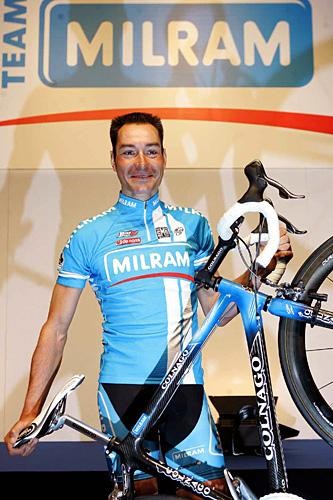
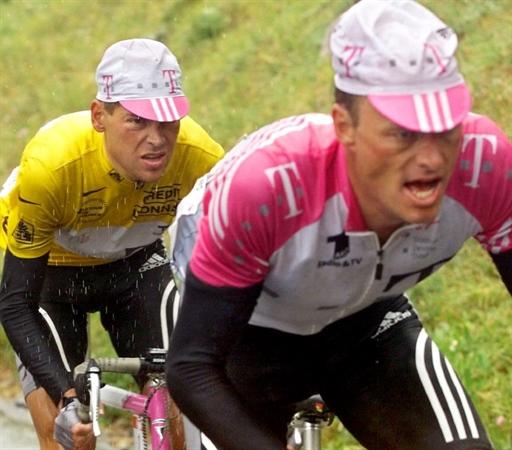
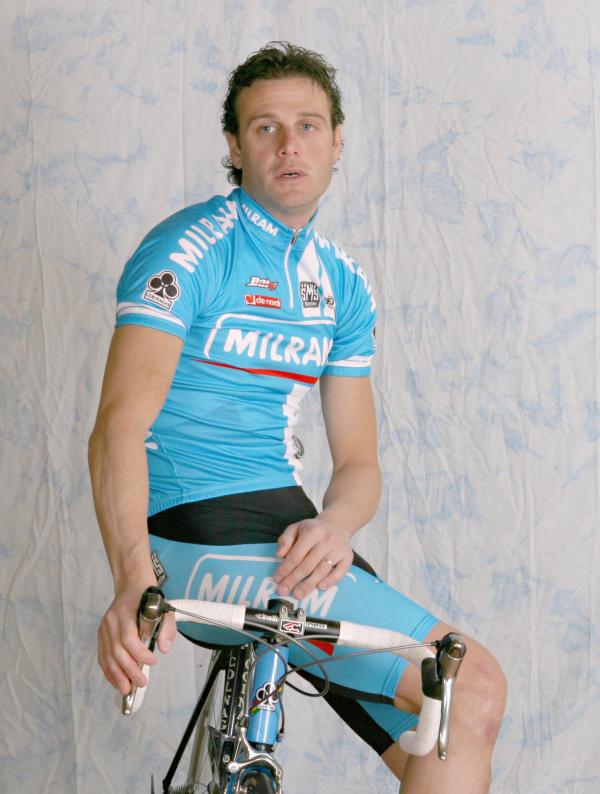
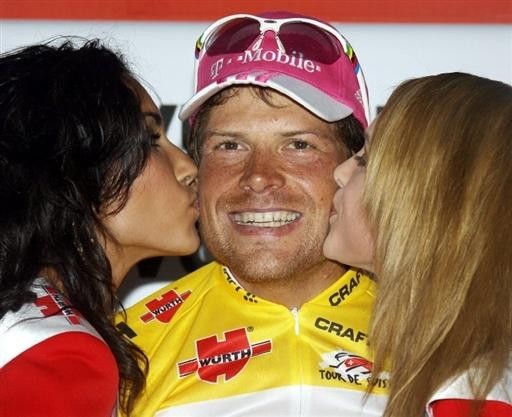
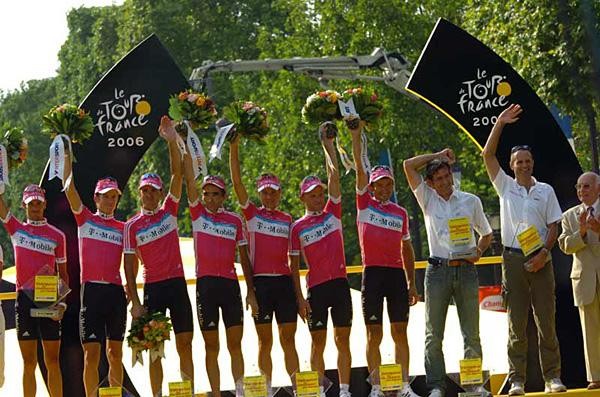
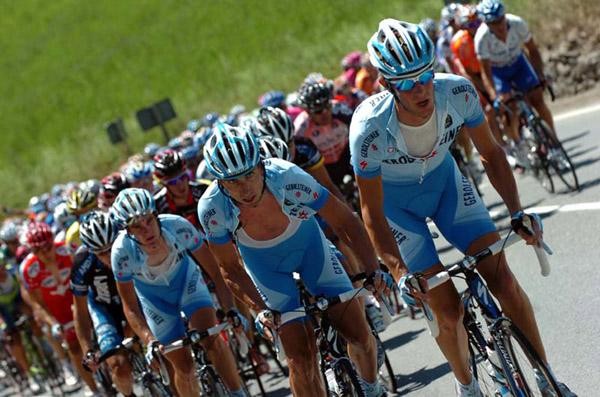
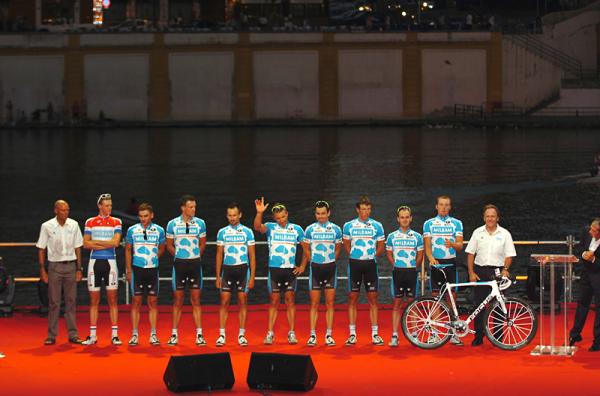
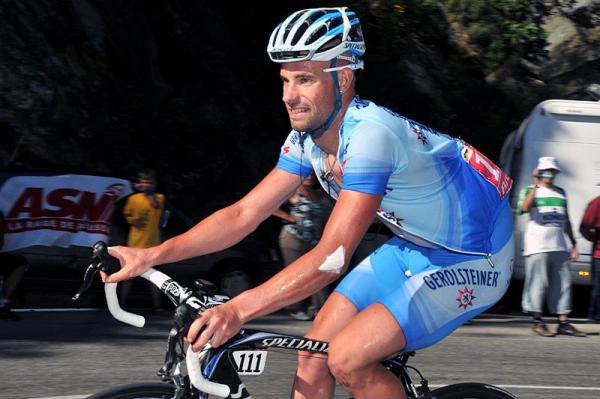
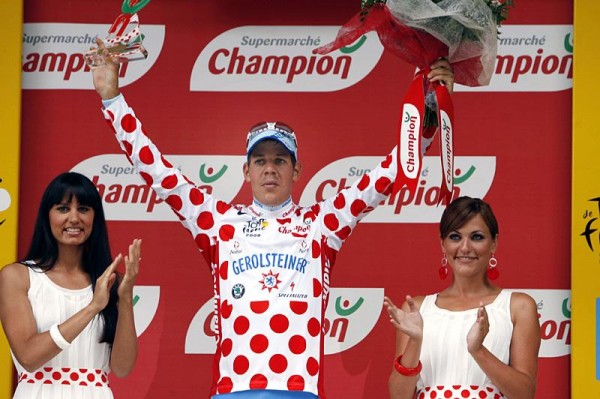
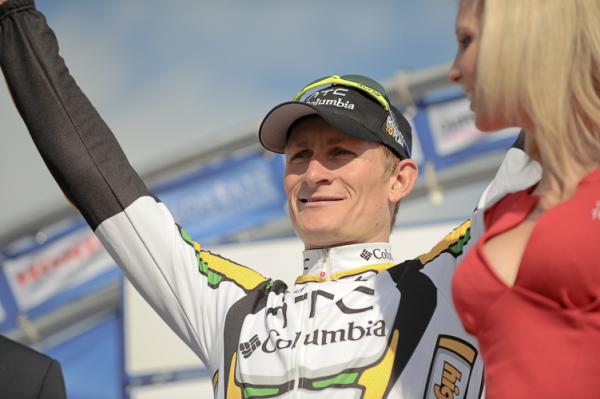
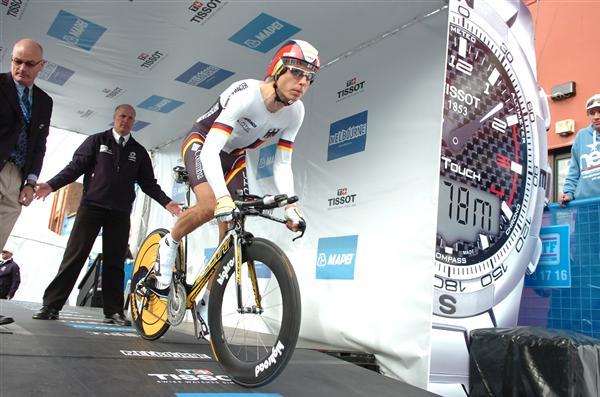
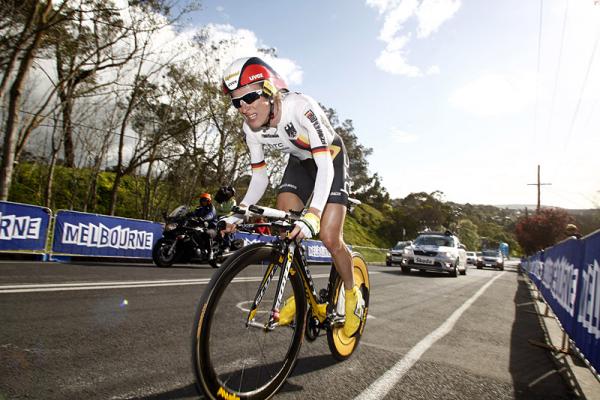
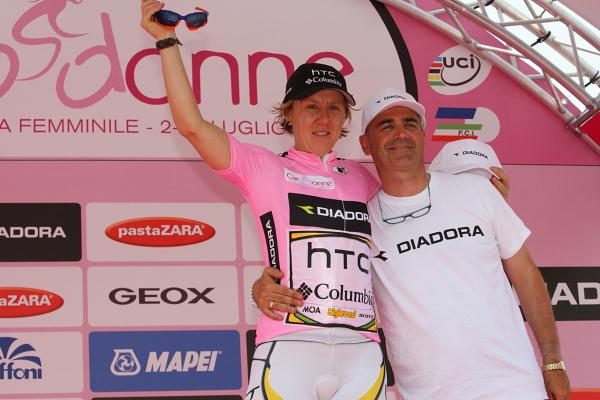
It’s 2007 and the bubble is about to burst for German cycling. While the country holds three ProTour teams, as well as big names like Erik Zabel, Alessandro Petacchi, Davide Rebellin and Stefan Schumacher, one by one, the three teams will disappear from the sport, with Milram the final one to fold.
Cyclingnews takes a look back at the events that have led to the decline of German professional cycling and what the future holds. Doping played a major role in the disappearance of the teams, whether exiting sponsors put the finger on the problem or potential sponsors were scared off by it.
Telekom/T-Mobile
The T-Mobile Team was the oldest of the German teams, taking over a small Stuttgart-based squad in 1991. The team had its highlights in the 1990s, winning the Tour de France in 1996 with Bjarne Riis and in 1997 with Jan Ullrich. It could also boast sprinter Erik Zabel, who won the Tour's green jersey every year from 1996 to 2001.
In 2007, the team brought in such prestigious wins as Gent-Wevelgem, a stage in the Tour de France as well as a day in the yellow jersey, and a stage at the Vuelta a España.
But both the 1990s and 2007 had their dark side: doping. In the spring of 2007, there were a spate of confessions by former Telekom/T-Mobile riders to their past use of doping, including Riis, Zabel and Rolf Aldag, while the team doctors admitted to having organised and administered doping products. The low point of the year came during the Tour de France, when it was announced that Patrik Sinkewitz had tested positive for testosterone during a pre-Tour training camp.
The German sponsors ended their contract abruptly that autumn, and team manager Bob Stapleton took the ProTour licence to the US where he established a new team.
Get The Leadout Newsletter
The latest race content, interviews, features, reviews and expert buying guides, direct to your inbox!
Gerolsteiner
The team was founded by Hans-Michael Holczer in 1998 and moved up to GS-1 status in 2001. It struggled in its early years, looking mainly for success from time trial specialists Michael Rich and Uwe Peschel. Its first Tour de France was disastrous with only three riders finishing the race.Two years later, Georg Totschnig won the team's first Tour stage, which overjoyed Holczer at the time, but which he later looked back upon with suspicion.
Davide Rebellin boosted the team's prestige when he joined in 2002, and his stunning hat-trick of wins in Amstel Gold Race, Flèche Wallonne and Liège-Bastogne-Liège in 2004 remains unmatched.
But Gerolsteiner's last Tour de France was even more disastrous than its first, even if the results would appear to have been a major success. Stefan Schumacher won both individual time trials, and Bernhard Kohl was third overall and King of the Mountains.
But it all fell apart quickly, with both Schumacher and Kohl eventually losing their honours and being suspended for EPO-CERA use. Schumacher also tested positive for EPO-CE a month later at the Olympic Games in Beijing, as did Rebellin.
Sponsor Gerolsteiner had already announced that it would discontinue its sponsorship after the 2008 season, and even with the apparent Tour successes, Holczer was unable to find a replacement. The multiplicity of doping news was the final nail in the coffin.
Milram
Team Milram actually started out with an Italian licence but with a German sponsor, Nordmilch AG. Under the leadership of Gianluigi Stanga, the team boasted top sprinters Alessandro Petacchi and Erik Zabel. Over the years, neither proved as successful as hoped, as Zabel rode more for the Italian and Petacchi was often injured.
Doping reared its head early, when Operación Puerto victim Jörg Jaksche declared in 2007 that Stanga had introduced him to doping. The Italian was out, and Dutchman Gerry van Gerwen moved from business manager to general manager.
Despite everything, Zabel and Petacchi managed to bring in a tidy number of wins, but it was clear that they were the only two capable of major accomplishments. And even that came to an end during the Giro d'Italia in 2007, when Petacchi delivered not only a number of stage wins but also a non-negative doping control for an asthma medication. It took some time, but ultimately he was suspended and fired from the team.
Petacchi's departure was also the end of the outfit's major victories. Every year it brought in a handful of wins, including overall wins in some minor stage races, Fabian Wegmann's two consecutive German national titles and a stage win in the Vuelta a España 2009.
The team faded into obscurity and, when Nordmilch this year decided to end its sponsorship, no one could be found to take over.
Women's cycling
Even German women's cycling wasn't spared the sponsorship problems, although doping does not weigh in this particular story. Insurance provider Nürnberg Versicherung sponsored the Equipe of the same name for 10 years, before bowing out at the end of 2009. Skyter Shipping agreed to take over, then cancelled at the last minute.
The much-reduced team rode a smaller schedule in 2010 under the name Equipe Noris Cycling. But without a name sponsor, team managers Herbert and Alexander Oppelt had to throw in the towel after the last race of the year.
The loss of the Equipe would leave Germany without a women's professional team, but the Continental-ranked men's Team Nutrixxion has announced its intention of transforming its Elite-2 Team Nutrixxion Lady into the professional ranks.
The future
Even the Professional Continental ranks are thin. There were no German teams on this level this year, and only one looking to join next year. Team NetApp, formed only in 2010 as a Continental team, wants Professional Continental status on its way up the ladder to the ProTour.
Germans in the peloton
There may be a lack of German teams, but there are a number of top German riders, as proved at the recent Worlds in Melbourne. Germany didn't win any titles, but won more medals than any other nation with two silver and two bronze.
Amongst the men, sprinter André Greipel leads the peloton with victories, and U-23 silver medalist John Degenkolb is fifth on that ranking. Tony Martin is the country's time trial champion and could soon threaten the crowned king of the art, Fabian Cancellara. Paul Martens came back from a serious kidney injury to win the GP de Wallonie in September. Former U23 world champion Gerald Ciolek has struggled the last few years, but is only 24 years old and could win again with a strong team behind him.
For the women, one can never count out Ina Teutenberg or Judith Arndt, although both are already in their mid-30s. Trixi Worrack had a strong season, but her future remains uncertain, as she must seek a new team. Charlotte Becker had two wins, but still spends a lot of time on the track.
The Germans in the pro peloton are scattered around the globe, with Greipel and Ciolek off to Belgium, and Martin and Degenkolb to the USA. Linus Gerdemann and Fabian Wegmann are said to be joining the new Luxembourg team. Others are with teams in Australia, Denmark and the Netherlands.
Milram manager Gerry van Gerwen has said he hopes to be back with a German team in 2012, but will again face the problem of finding a top German star to lead the outfit, as well as a sponsor willing to support a doping-plagued sport in a country that has apparently turned its back to pro cycling.